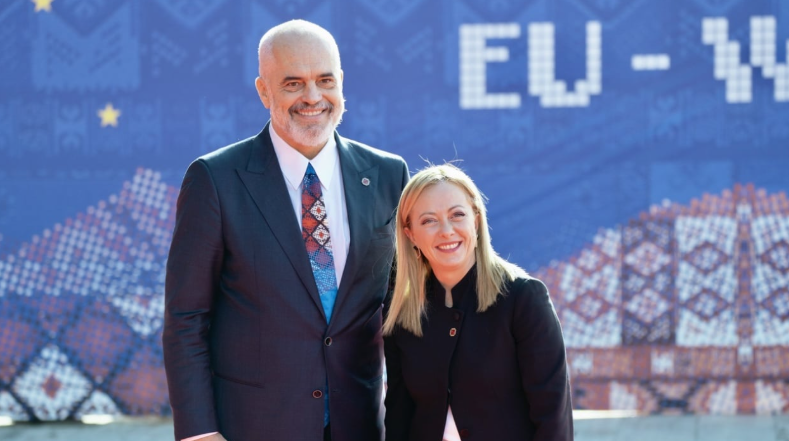Defense, industry, and migration will be the main topics on the agenda of the first-ever Italy–Albania Intergovernmental Summit, scheduled to take place on Thursday in Rome, where the two neighboring governments will meet under the leadership of Prime Ministers Edi Rama and Giorgia Meloni.
Italian media outlets have revealed new details about the Rome Summit, describing it as a significant step in Albania’s EU integration process.
“Tirana remains on the EU accession waiting list but is making significant progress in filling structural gaps,” reports noted, underscoring the importance of the talks for strengthening regional cooperation.
The intergovernmental meeting is expected to review bilateral collaboration and agree on further initiatives aimed at deepening the strategic partnership between Rome and Tirana. Key areas under discussion include defense and security, energy, migration, civil protection, healthcare, environment, economic development, and infrastructure, with a particular focus on vocational training and capacity building in each of these sectors.
In the defense sector, Italy will provide modern equipment and technology, while a new maritime infrastructure will be established in Albania to support shipbuilding and maintenance operations.
In energy cooperation, both sides are advancing projects based on the trilateral agreement between Italy, the United Arab Emirates, and Albania, signed in Abu Dhabi on January 15, 2025. This deal includes the production of renewable energy in Albania and the creation of a submarine power interconnector linking Italy and Albania.
On migration, a joint working group will be formed to strengthen coordination against illegal migration and enhance Albania’s maritime patrol capabilities, reflecting growing collaboration between the two countries on border management and security.
The summit will also address other key areas, including public health, economic growth, and infrastructure development, further solidifying what both governments describe as a strategic partnership built on shared interests, regional stability, and European integration.







